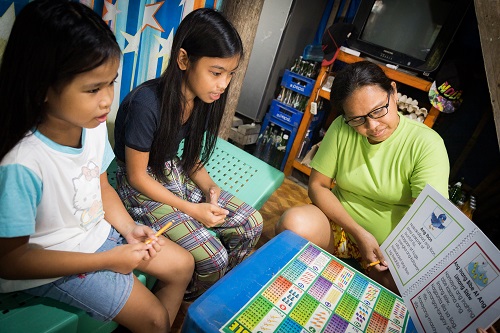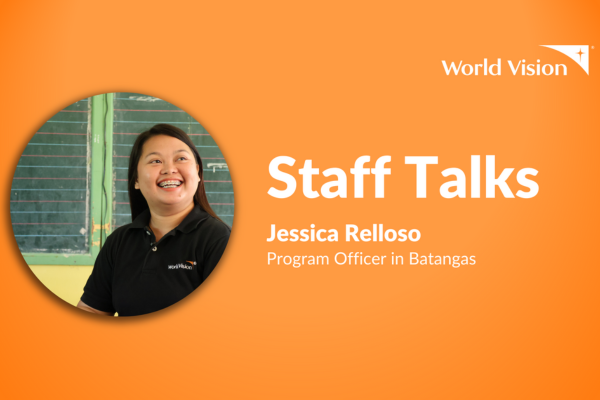A mother volunteers to help young children who cannot read
A Filipino child who receives poor or inadequate reading experience will most likely encounter literacy problems in school.
Rosilyn, a teacher by profession, agrees with this. “There are kids who cannot read words nor the alphabet. Then some can read but cannot comprehend. For instance, they can read ‘cat’ but they don’t know what it is.”

Although the Philippines has a high literacy rate of 97.95, a 2019 Functional Literacy, Education, and Mass Media (FLEMMS) report shows that only half (53.4%) of elementary graduates can read, write, compute, and comprehend.
In a technological society, the demands for higher literacy are ever-increasing, creating more serious consequences for those who fall short.
“Literacy is a crucial aspect in the development of a child, especially at this fast-paced, technology-driven age,” says World Vision National Director Rommel Fuerte during the launching of Brigada Pagbasa (Reading Brigade) in 2019.
An extension of the Department of Education’s Brigada Eskwela (School Brigade), Brigada Pagbasa fills the literacy gap by promoting the value of reading among young Filipino children both in rural and urban areas.
Volunteering as tutor for Brigada Pagbasa is Rosilyn’s first. “I was previously a stay-at-home mother.” World Vision provided volunteer teachers with training and books to help them with their tasks.
Rosilyn recently finished her tutorial job for two elementary students: Kyla, Grade 2, and James, Grade 5.
Teaching Kyla and James stretched her patience as a teacher. “Though both are struggling learners, James is much easier to teach. He learns fast. Kyla, on the other hand, is quite difficult. She wants to draw most of the time. She cannot read words. If I show her a photo of a dog, she would say ‘dog’ but if I ask her to read the words, she couldn’t. She would do all sorts of things to avoid reading. Once she asked me to do a Tiktok dance with her. She’s not interested at all to study.”
She believes that Kyla and James’ reading habit is due to the absence of an adult who should teach them. Both children live with their grandparents. Their parents are working and live outside town.
Though both Kyla and James are back in school, she still worries about them and hopes that they would improve. “It’s really important to teach children the habit of reading at a very young age so they wouldn’t struggle when they begin their school,” Rosilyn shares.
Rosilyn can’t help but compare and be proud of her youngest daughter, Zoe, 7, a World Vision sponsored child. “She does her homework by herself. I merely check her work after she’s done.” Zoe, who is currently in Grade 2, has been an honour student.
Her volunteer teaching experience taught Rosilyn a lot of things. “I admit, at first, I volunteered because I wanted to have a certificate which I can use for applying for a teaching position. But later on, I got motivated to help struggling learners, like Kyla and James, to read. If they don’t know how to read, they may not have a fulfilling life, or worst, people might take advantage of them in the future.”
In 2021, World Vision trained more than 1,100 teachers and community volunteers on how to effectively teach reading among children. These trained individuals were able to help around 3,700 struggling learners through reading remedial lessons during school breaks.








